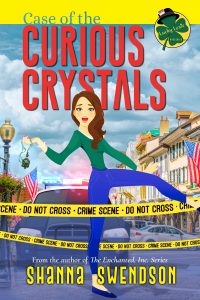Familiar Things
I’ve found myself pondering the tug of war between the familiar and the new. I’d planned to make an effort this fall to try new things. I couldn’t go anywhere on a vacation, but I could create a change of pace at home by doing different things, like cooking new recipes. But when fall hit, I was so excited to get back to some of my favorite fall recipes that it was hard to fit in new things among the old favorites. I was looking forward to those soups and breads that I know I love and haven’t had since early this year, so I made those instead of the new recipes. I did make a couple of new dishes, but I didn’t like them as much as the favorites. I tried a new scone recipe yesterday, and that one’s going in the regular rotation, so it wasn’t a total failure.
I run into the same problem when it comes to watching movies. I start scrolling through the streaming menu, and the familiar ones jump out at me, so I end up rewatching things instead of watching something new. I haven’t had great luck in trying new ones. They tend to be not what I was expecting, and that’s not good when you’re expecting a romantic comedy and get a depressing drama. Now that Christmas movie season is upon us, there’s the tug between the ones I know I like and the new ones that may or may not be any good. Then there are the ones that are traditional, the specials and movies I watch every year, even though I just about have them memorized. They’re more background noise than something I really watch, but it’s comforting to absorb them in the background.
I’m doing better about reading new books instead of re-reading favorites, though there is a strong temptation to reach for the comfort reads.
There is a known bias toward familiarity. You’re drawn to the familiar. That’s part of the point of advertising, to make something more familiar to you so that when you see it in a store, it jumps out at you and you choose the most familiar thing.
I’ve decided to balance things. I’m making an effort to try new things, whether it’s new recipes or new movies, but when I want something reassuring and comfortable, there’s no harm in going with the familiar.
And maybe this is part of my problem when it comes to book promotion. I’m bad about not wanting to bother people with repeated messages, but it does take repeated exposure to things before they become familiar enough for people to accept them.

 Book two in my mystery series, Case of the Curious Crystals is now available. I’ve drafted book 3 and will start revisions next week, so I’ll figure out then how much work it needs and that will tell me when it’s likely to come out.
Book two in my mystery series, Case of the Curious Crystals is now available. I’ve drafted book 3 and will start revisions next week, so I’ll figure out then how much work it needs and that will tell me when it’s likely to come out.